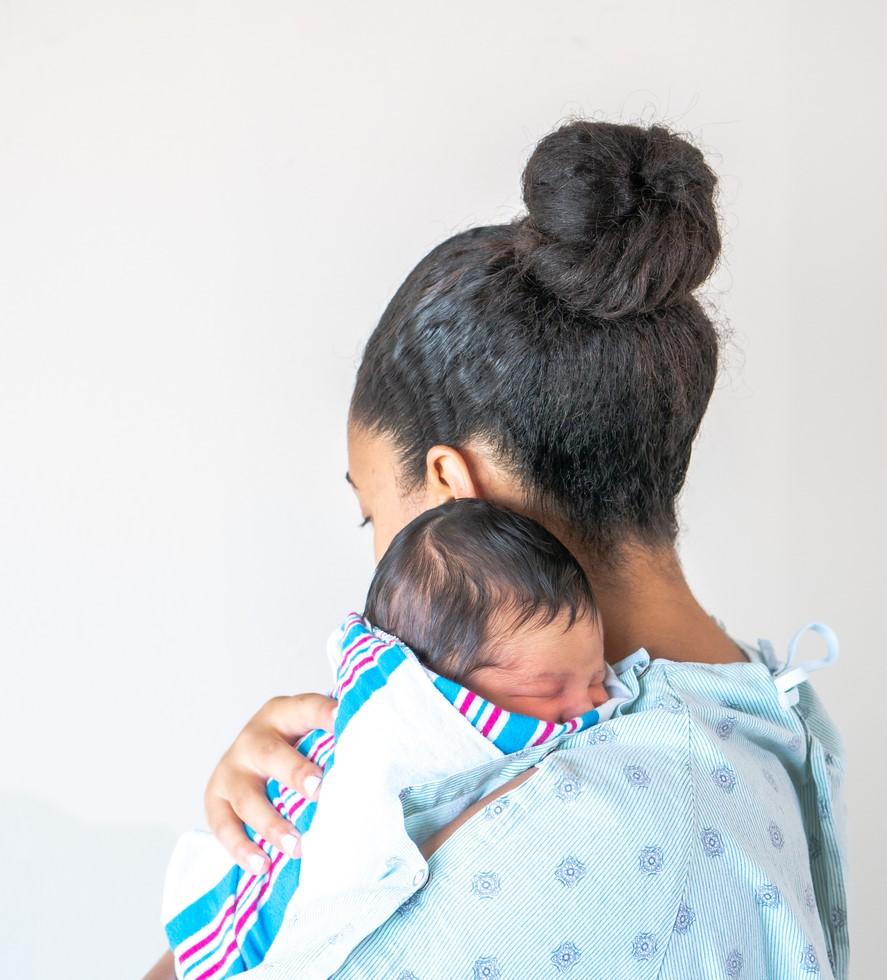Two studies published yesterday in JAMA, one from Sweden and Norway and one from Ontario, find no link between COVID-19 vaccination during pregnancy and adverse outcomes.
No link to preterm birth, stillbirth, NICU admission
In the first study, a team led by researchers from the Norwegian Institute of Public Health in Oslo and the Karolinska Institute in Stockholm studied 157,521 singleton pregnancies ending after 22 weeks' gestation among vaccinated and unvaccinated pregnant women listed in national birth registries. The study period began Jan 1, 2021, ending on Jan 12, 2022, in Sweden, and 3 days later in Norway.
Of the 157,521 births, 103,409 took place in Sweden, and 54,112 occurred in Norway. Average maternal age was 31 years, and 18% were vaccinated against COVID-19 during pregnancy (12.9% with Pfizer/BioNTech, 4.8% with Moderna, and 0.3% with AstraZeneca/Oxford). Among the vaccinated women, 4.4% received only one vaccine dose, while 13.7% had two.
A total of 0.7% of women were vaccinated during the first semester, while 8.3% and 9.1% were vaccinated during the second and third trimesters, respectively. Relative to the unvaccinated, vaccinated mothers in both countries were more likely to be older, have been born in Scandinavia, have an underlying illness, and have other children, higher educational attainment, and a higher income.
Among women who stayed unvaccinated throughout pregnancy, 8.5% were infected with COVID-19 while pregnant, compared with 3.4% of those vaccinated during pregnancy. Of all births, 4.2% were preterm (2.6% spontaneous, 1.6% medically indicated), 0.5% were very premature, 8.4% were small for gestational age, 1.6% had a low Apgar score, 8.5% were admitted to a neonatal intensive care unit (NICU), and 0.2% were stillbirths. The Apgar test assesses newborns' physical condition shortly after birth.
Vaccination was not significantly tied to an increased risk of preterm birth (6.2 vs 4.9 per 10,000 pregnancy days; adjusted hazard ratio [aHR], 0.98), stillbirth (2.1 vs 2.4; aHR, 0.86), small for gestational age (7.8% vs 8.5%; difference, –0.6%; adjusted odds ratio OR [aOR], 0.97), low Apgar score (1.5% vs 1.6%; difference, –0.05%; aOR, 0.97), or NICU admission (8.5% vs 8.5%; difference, 0.003%; aOR, 0.97).
The results were the same after adjustment for smoking status or body mass index and were similar for vaccination during the second or third trimester, one or two vaccine doses, and for the two mRNA vaccines (Pfizer and Moderna).
The researchers noted that pregnant women are at higher risk for severe COVID-19, pregnancy complications, and adverse infant outcomes. Vaccination during pregnancy also has an advantage in that resulting maternal antibodies are passed through the placenta, giving newborns some degree of protection against infection, they added.
"We’re still seeing that vaccination rates are lower than in the rest of the population, so it’s likely that there’s some concern about how the vaccines affect the pregnant individual and the fetus," co-first author Anne Ortqvist Rosin, MD, PhD, said in a Karolinska Institute press release. "The results are reassuring and can hopefully make pregnant individuals more willing to get vaccinated."
Risk of postpartum hemorrhage, cesarean delivery
In the second study, a team led by University of Ottawa researchers assessed the risk of postpartum hemorrhage, chorioamnionitis (infection of the placenta and amniotic fluid), cesarean delivery, admission to a NICU or low 5-minute Apgar score among 97,590 pregnant women and their newborns in an Ontario birth registry. The study included all deliveries from Dec 14, 2020, to Sep 30, 2021.
Among the 97,590 women, 23% received at least one dose of COVID-19 vaccine during pregnancy, 63.6% of them doing so in the third trimester, and 99.8% receiving an mRNA vaccine. Another 44,815 women (46%) were vaccinated after delivery. Average maternal age was 31.9 years.
Among mothers vaccinated during rather than after pregnancy, there were no significantly increased risks of postpartum hemorrhage (incidence, 3.0% vs 3.0%; adjusted risk difference [aRD], −0.28 per 100 women; absolute risk reduction [aRR], 0.91), chorioamnionitis (0.5% vs 0.5%; aRD, −0.04 per 100 women; aRR, 0.92), cesarean delivery (30.8% vs 32.2%; aRD, −2.73 per 100 women; aRR, 0.92), NICU admission (11.0% vs 13.3%; aRD, −1.89 per 100 newborns; aRR, 0.85), or low Apgar score (1.8% vs 2.0%; aRD, −0.31 per 100 newborns). Results were similar when compared with those of the 30,115 mothers not vaccinated at any point.
"COVID-19 vaccination during pregnancy, compared with vaccination after pregnancy and with no vaccination, was not significantly associated with increased risk of adverse peripartum outcomes," the authors concluded. "Study interpretation should consider that the vaccinations received during pregnancy were primarily mRNA vaccines administered in the second and third trimester."
Convincing the vaccine-hesitant
In a related editorial, Elyse Kharbanda, MD, MPH, and Gabriela Vazquez-Benitez, PhD, of HealthPartners Institute in Minneapolis, Minnesota, said that vaccine hesitancy among pregnant women was understandable when COVID-19 vaccines were first given emergency use authorization, because they hadn't been included in the initial clinical trials.
"The question remains whether the evidence from these 2 studies will convince those who remain unvaccinated to receive a COVID-19 vaccine during pregnancy," they wrote. "More work is needed to achieve equity in the availability, acceptance, and administration of life-saving interventions such as the COVID-19 vaccines."
Kharbanda and Vazquez-Benitez called for studies of vaccine safety in pregnancy to be replicated in countries or regions in which the non-mRNA COVID-19 vaccines are primarily used in pregnant women.
"Generation of further evidence should be coupled with effective strategies for disseminating evidence regarding the benefits and safety of COVID-19 vaccination during pregnancy," they wrote.




















